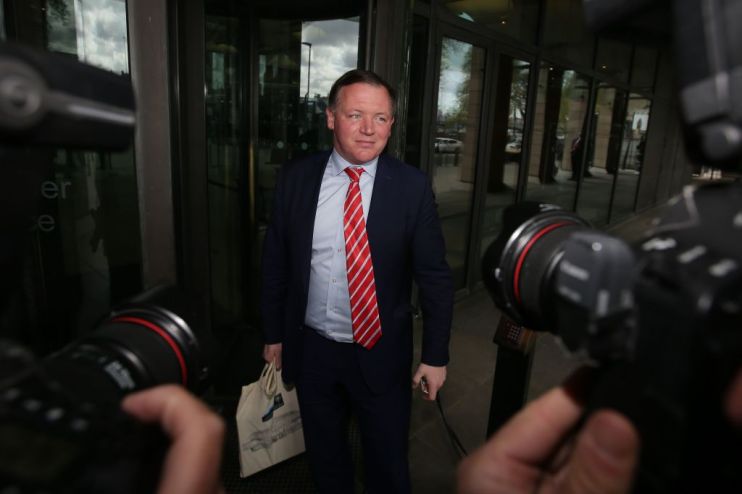Facebook documents: Four things we learned from 250 pages of confidential emails

Parliament today published a tranche of confidential Facebook documents it seized as part of an inquiry into fake news.
The release of nearly 250 pages of internal documents, seized from a tech firm suing the tech giant, includes emails sent between chief executive Mark Zuckerberg and COO Sheryl Sandberg.
Damian Collins, chair of the Digital, Culture, Media and Sport select committee, defended the publication of the documents, saying there was “considerable public interest” around them.
Their release follows Zuckerberg’s refusal to appear in front of MPs to answer questions about Facebook’s role in the Cambridge Analytica scandal, which saw 87m users’ data harvested via social apps that granted developers access to data belonging to friends of people who signed up to the apps.
“We don’t feel we have had straight answers from Facebook on these important issues, which is why we are releasing the documents,” Collins added.
Here are the biggest claims emerging from the report, which comes as Facebook appeals a £500,000 fine from the UK’s data watchdog over its role in the huge data leak.
Some apps were allowed to keep access to friends’ data
According to the documents, Facebook whitelisted certain firms to continue to maintain access to Facebook users’ friends’ data gathered via apps despite platform changes in 2014 to rule out such access.
“It is not clear that there was any user consent for this, nor how Facebook decided which companies should be whitelisted or not,” Collins said.
The documents show that companies like Airbnb and a developer of apps with names like Hot or Not were given continued access to friends’ data.
An excerpt from a Netflix email read: “We will be whitelisted for getting all friends, not just connected friends.”
Rival app monitoring
Facebook is accused of aggression against competing social apps, by starving them of data, which Collins claims led to some apps failing.
Facebook allegedly used Israeli analytics firm Onavo to secretly track what apps people were using and how often they used them, in order to work out which to treat as competitors and which to buy.
Zuckerberg himself appears to have signed off a request to shut down Twitter’s Vine video app’s ability to find friends via Facebook. The app closed to uploads in 2016.
Data leak to developers
Facebook appears to have discussed in depth the financial value of providing access to friends’ data.
“The idea of linking access to friends data to the financial value of the developers’ relationship with Facebook is a recurring feature of the documents,” Collins said.
In one email dated 27 October 2012 to then-VP of product management, Sam Lessin, Zuckerberg wrote: “There’s a big question on where we get the revenue from.
“Without limiting distribution or access to friends who use this app, I don’t think we have any way to get developers to pay us at all besides offering payments and ad networks.”
He also acknowledged that Facebook effectively leaked data to developers, saying: “I’m generally sceptical that there is as much data leak strategic risk as you think. I agree there is clear risk on the advertiser side, but I haven’t figured out how that connects to the rest of the platform. I think we leak info to developers, but I just can’t think if any instances where that data has leaked from developer to developer and caused a real issue for us.”
Android app controversy
Facebook seemingly knew that changes to its policies on Google’s Android operating system, which allowed Facebook’s app to collect a record of calls and texts made by a user, would prove controversial.
“To mitigate any bad PR, Facebook planned to make it as hard of possible for users to know that this was one of the underlying features of the upgrade of their app,” Collins said.
Discussing the risk of Android’s app requiring users to agree to such monitoring, Facebook staffer Mike LeBeau said in 2015: “This is a pretty high risk thing to do from a PR perspective but it appears that the growth team will charge ahead and do it.”
Yul Kwon, Facebook’s head of privacy at the time, replied that the team had found a way to avoid a permissions screen appearing.
What Facebook said
Facebook said that the documents in isolation are presented in a way that is “very misleading without additional context”.
“We stand by the platform changes we made in 2015 to stop a person from sharing their friends’ data with developers,” a spokesperson added.
“Like any business, we had many of internal conversations about the various ways we could build a sustainable business model for our platform. But the facts are clear: we’ve never sold people’s data.”